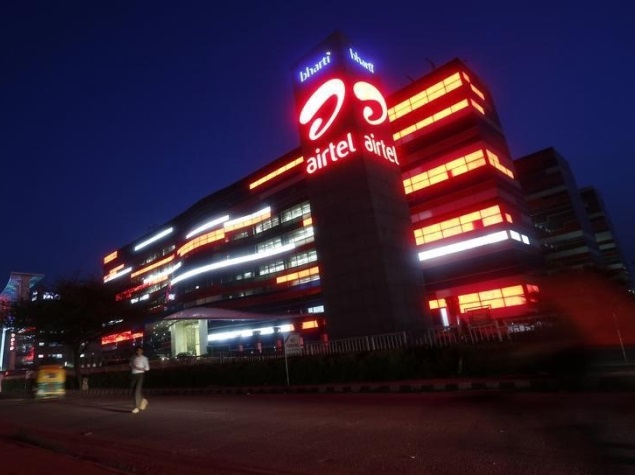 Growth in data traffic is far from compensating top telecommunications operators for their floundering voice business, even as increasing usage of apps to make calls and Reliance Jio Infocomm’s imminent launch further add to their woes. In an industry where competition seems to be returning in full fury, the companies are unable to raise tariffs to cushion the impact.
Growth in data traffic is far from compensating top telecommunications operators for their floundering voice business, even as increasing usage of apps to make calls and Reliance Jio Infocomm’s imminent launch further add to their woes. In an industry where competition seems to be returning in full fury, the companies are unable to raise tariffs to cushion the impact.
Bharti Airtel and Idea Cellular both posted higher year-on-year net profit in the fourth quarter ended on March 31. But the former, India’s No. 1 telecom operator, posted its first sequential profit fall in six quarters while missing estimates by a long way. Idea, the country’s third largest, met the lower end of analyst estimates.
The standout theme for both was the struggling voice business, which accounts for more than 80% of overall revenue. Revenue per minute (RPM) for Airtel and Idea continued to drop sequentially, this time dropping by 2.4% and 3%, respectively. Revenue from data grew, though on a small base.
“It’s clear that voice margins and revenue are decreasing, but data growth isn’t adequately compensating for revenue loss from voice,” said Rajan Mathews, director-general of the Cellular Operators Association of India, an industry body representing GSM-based operators such as Bharti Airtel, Idea Cellular and Vodafone India.
On a voice call, a telecom operator earns about 35-36 paise a minute. But, if the caller is using a mobile app to make the same call, the company gets just about a fifth, or around 7 paise, at current tariffs for data usage.
In a recent report, Bharti Airtel said at current revenue realization, every 1% of voice minute that is substituted by a call through an app would lead to a Rs 1,200 crore revenue loss to the industry.
A fall in their return on investment to a single digit could “shortchange network investments” that operators need to make to expand and deepen data networks, Math”It’s clear that voice margins and revenue are decreasing, but data growth isn’t adequately compensating for revenue loss from voice,” said Rajan Mathews, director-general of the Cellular Operators Association of India, an industry body representing GSM-based operators such as Bharti Airtel, Idea Cellular and Vodafone India.
On a voice call, a telecom operator earns about 35-36 paise a minute. But, if the caller is using a mobile app to make the same call, the company gets just about a fifth, or around 7 paise, at current tariffs for data usage. In a recent report, Bharti Airtel said at current revenue realization, every 1% of voice minute that is substituted by a call through an app would lead to a Rs 1,200 crore revenue loss to the industry.
A fall in their return on investment to a single digit could “shortchange network investments” that operators need to make to expand and deepen data networks, Mathews said. Also, Bharti, Idea and Vodafone’s commitment to pay more than Rs 85,000 crore over the next 12 years to the government for airwaves with high-speed datacarrying capacity would add to their input Top carriers are focused on adding users and hence can’t raise voice rates. Post results, Gopal Vittal, Bharti’s managing director and chief executive for India and South Asia, and Idea CEO Himanshu Kapania said they need to but can’t raise rates.
“There is hyper competition in the market. Also, the nature of voice growth is changing. Earlier, our growth came from profitable circles, but now the volumes are coming from emerging circles where pricing tends to be lower,” Kapania told ET recently.
Moreover, operators are unlikely to raise data rates – already at record lows to attract more users – with the threat of Reliance Jio’s 4G services launch looming.
Credit Suisse, while noting the continuous pressure on operators’ voice business, said Idea’s voice revenue per minute was at an all-time low level, having fallen 6% year on year. While data traffic continues to grow, this growth “could soon run out of steam”, given Reliance Jio’s impending entry and the need for carriers to keep rates low to get subscribers, the brokerage firm said. Credit Suisse maintained its underperform, or negative, rating on both Idea and Bharti.
Brokerage Emkay has a “cautious” view on the sector. For this, it cited a sustained declined in operators’ voice business.
“Launch of R-Jio would continue to remain an overhang on the telecom sector as we strongly believe R-Jio would launch data services with huge price disruption,” it said in a report.
An improvement in the quality of free voice services on apps such as Skype and WhatsApp will further strain mobile operators’ bread-and-butter business.
“There is most definitely going to be an impact on voice revenue as more OTT (over-the-top) players offer VoIP services, especially given how popular voice services are in India,” said Neha Dharia, senior analyst at Ovum’s Consumer Services telecoms research.
Ovum estimates $2.76 billion (Rs 17,545 crore) cumulative loss in SMS (and valueadded service) revenue in India in the past two years due to the growing popularity of OTT apps. costs and pressure margins.






